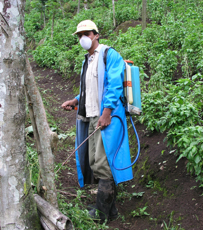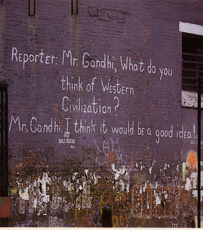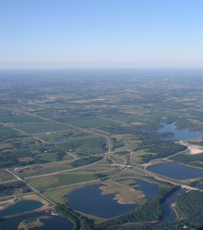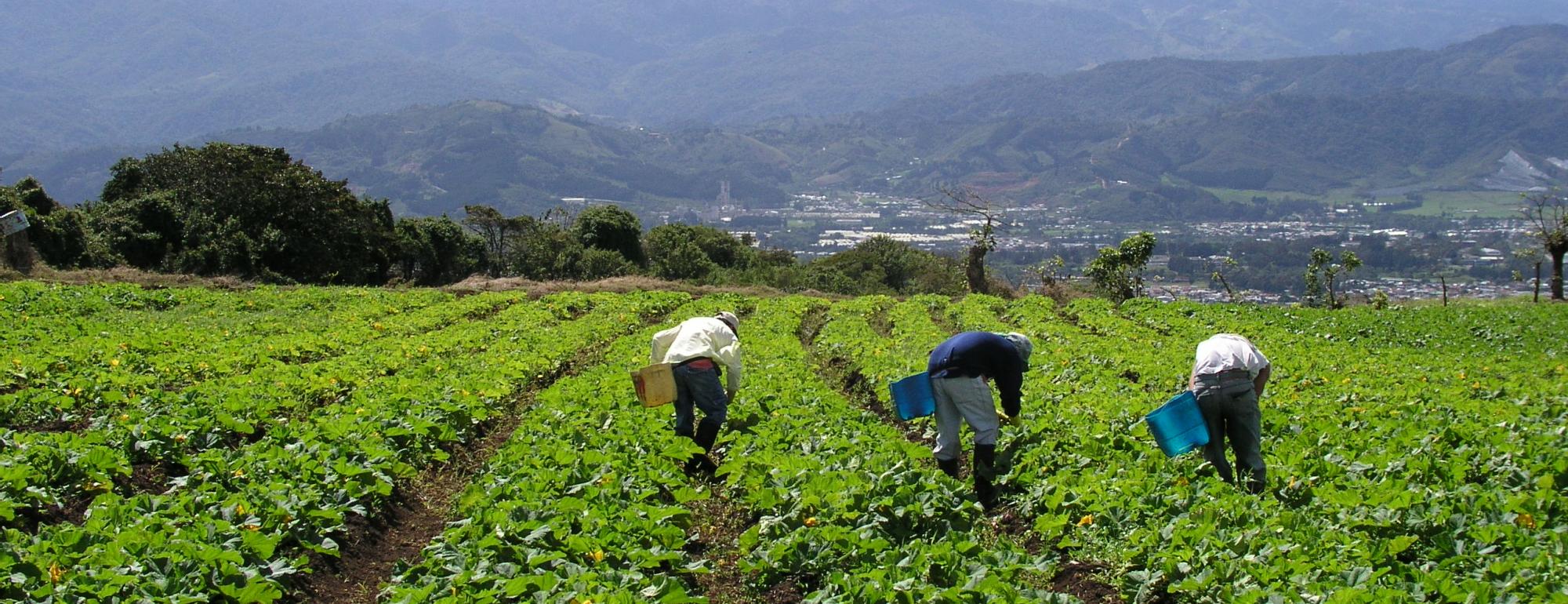REGIONAL FOOD SYSTEMS & COVID-19
Please see this page for details.
Publications resulting from this work:
Durant, J., Asprooth, L., Galt, R., Pesci, S., Manser, G., Pinzon, N. Farm resilience during the Covid-19 pandemic: the case of California direct market farmers. 2022. Agricultural Systems, 103532. https://doi.org/10.1016/j.agsy.2022.103532
COMMUNITY SUPPORTED AGRICULTURE IN CALIFORNIA
Please see this page for details.
JUST CHOCOLATE? THE QUEST TO MAKE CACAO & CHOCOLATE FAIR AND SUSTAINABLE
In 2015 I was awarded a 5-year rotating MacArthur Foundation Endowed Chair in Global Conservation with an Emphasis on Sustainable Development for a project entitled "Just chocolate? Impacts of ethical cacao-chocolate commodity chains on biodiversity conservation, crop genetic diversity, and livelihoods." Below are the main concerns driving the project.
Many cacao farmers around the world struggle to earn a decent income from their production activities. At the same time, in many of the 60 nations that produce cacao, canopies of tropical rainforest trees provide shielding shade to cacao trees, including many heirloom cacao cultivars known to chocolatiers as “flavor trees,” and provide habitat for a bewildering array of mammals, birds, reptiles, amphibians, and insects. Yet, these heirloom varieties and the biodiversity-enhancing shade tree canopy of the agroforestry system are often being removed to make way for higher-yielding varieties to meet rapidly growing global demand for chocolate. These tensions quickly reveal that questions of livelihoods, biodiversity, and crop genetic diversity — all key sustainable agriculture challenges of our time — are implicated and intertwined in vastly complex ways to make the seemingly simple chocolate bar many of us enjoy. Solving these together by answering the challenge of just chocolate — providing just (fair) livelihoods for cacao farmers and workers, and ensuring that cacao producing regions and landscapes are not just (only) full-sun monocultures of a few cultivars of cacao trees — presents an extraordinary opportunity for which interdisciplinary research is extremely well- positioned.
The first phase of the project involved preliminary interviews with bean-to-bar chocolate makers in the United States to get an understanding of the new American chocolate movement. My graduate students and I are working on analyzing this data currently.
The second phase came from a session at the 2016 Chocolate Makers Unconference in Seattle. Launched May 2017, it is a collaboration with Dr. Carla Martin, Executive Director of the Fine Cacao and Chocolate Institute (FCCI) and Lecturer at Harvard University, in which we are administering two surveys. One is for the fine chocolate and specialty cacao industry (with a focus on North America) and one for academics doing research in chocolate and cacao. We aim to understand the needs of the industry and to foster collaborations to meet these research needs.
Questions about the project can be sent to justchocolate@ucdavis.edu.
Resulting publications:
Galt, Ryan E. 2020. "Farm-to-bar and bean-to-bar chocolate on Kaua‘i and the Big Island, Hawai‘i: an industry profile and quality considerations." In Fermented landscapes: lively processes of socio-environmental transformation, edited by Colleen Myles, 173-218. Lincoln: University of Nebraska Press.
TRANSFORMATIVE FOOD SYSTEMS EDUCATION: A PRAXIS OF CRITICAL SOCIAL CONSTRUCTIVISM 
Societal interest in agri-food systems seems to be at an all-time high, leading to new classes and majors here at UC Davis and elsewhere. The creation and execution of our new food systems class involves students, teaching assistants, and professors in jointly creating, teaching, and ultimately reflecting and writing on the praxis of critical social constructivist pedagogy that we employ. We maintain that teaching food systems according to traditional pedagogical approaches will help perpetuate the very systems of domination and exclusion that critical scholars of agrifood systems problematize in their scholarship. Thus, we are working towards producing a food systems pedagogy embedded in a practice of freedom.
Researchers involved: Heidi Ballard, Jessy Beckett, Janaki Jagannath, Maggie Lickter, Damian Parr, & Julia Van Soelen Kim
Resulting publications:
Galt, Ryan E., Damian M. Parr, Julia Van Soelen Kim, Jessica Beckett, Maggie Lickter, and Heidi L. Ballard. 2013. Transformative food systems education in a land-grant college of agriculture: the importance of learner-centered inquiries. Agriculture and Human Values 30 (1): 129-142. [Full text (protected)] [Pre-publication version]
Galt, Ryan E., Damian Parr, and Janaki Jagannath. 2013. Facilitating competency development in sustainable agriculture and food systems education: a self-assessment approach. International Journal of Agricultural Sustainability 11 (1):69-88. [Full text (protected)] [Pre-publication version]
Galt, Ryan E., Susan Clark, and Damian Parr. 2012. Engaging values in sustainable agriculture and food systems education: toward an explicitly values-based approach. Journal of Agriculture, Food Systems, and Community Development 2 (3):43-54. [Full text (protected)] [Pre-publication version]
Resulting presentations:
Galt, Ryan E., Damian Parr, Jessy Beckett, Julia Van Soelen Kim, and Libby O’Sullivan. 2010. Teaching food systems: attempts at a critical social constructivist pedagogy in a land grant university college of agriculture. Annual Meeting of the Association of Environmental Studies and Sciences, Portland, Oregon, 19 June.
Galt, Ryan E., Jessy Beckett, and Genna Lipari. 2010. Rethinking course design through building student competencies: process, implementation, and outcomes in CRD 20-Food Systems. Faculty Mentoring Faculty Program, UC Davis, 5 February. [YouTube video of presentation][Quicktime video of presentation] [PDF of presentation]
Galt, Ryan E. 2009. Challenges and small successes from my first interdisciplinary Food Systems course. Third National Conference on Facilitating Sustainable Agriculture Education, Ames, Iowa, 17 July.
Galt, Ryan E. 2009. What I learned (and did not learn) from my first interdisciplinary Food Systems course: an exploration in evaluation. Thinking Outside of Boxes: Rigorous Interdisciplinarity in Teaching, Teaching Resources Center, UC Davis, 7 May.
GLOBALIZATION, PESTICIDES, & GOVERNANCE
This project examines recent changes in the global pesticide complex and the global fresh produce trade. It combines theory developed from my fieldwork with secondary data on transnational vegetable commodity chains, various country's regulations, and pesticide manufacturing, trade, use, and residues to examine important changes in recent decades. A primary goal is to identify the extent to which different commodity chains have and have not successfully adapted to pesticide regulations and to explain why. To date this has involved (1) a reconceptualization of the “circle of poison” argument popularized in the late 1970s and early 1980s; (2) an empirical look at the extent to which residue tests used by the US Food and Drug Administration (FDA) will detect agrochemicals used on certain types of produce, (3) an global examination of illegal pesticide residues on fresh vegetables imported into the US, with results presented by country, vegetable, and pesticide, and (4) a critique of "technocratic regimes of protection" that reveals the inadequacy of most efforts to address farmers’ protective gear use.
Resulting publications:
Galt, Ryan E. 2012. From Homo economicus to complex subjectivities: Reconceptualizing farmers as pesticide users. Antipode. [Full text (protected)] [Pre-publication version]
Galt, Ryan E. 2011. Circulating science, incompletely regulating commodities: governing from a distance in transnational agro-food networks. In Knowing nature: conversations at the intersection of political ecology and science studies, pp. 227-243, edited by Mara J. Goldman, Paul Nadasdy, and Matthew D. Turner. Chicago: University of Chicago Press. [Book] [Pre-publication version]
Galt, Ryan E. 2010. Scaling up political ecology: the case of illegal pesticides on fresh vegetables imported into the United States, 1996-2006. Annals of the Association of American Geographers 100 (2): 327-55. [Full text (protected)] [Pre-publication version]
Galt, Ryan E. 2009. Overlap of U.S. FDA residue tests and pesticides used on imported vegetables: empirical findings and policy recommendations. Food Policy 34: 468-476. [Full text (protected)] [Pre-publication version]
Galt, Ryan E. 2008. Beyond the circle of poison: significant shifts in the global pesticide complex, 1976-2008. Global Environmental Change 18 (4): 786-799. [Full text (protected)] [Pre-publication version]
POLITICAL ECOLOGY OF PESTICIDE USE IN COSTA RICAN VEGETABLE PRODUCTION 
My dissertation explored environmental and social aspects of intensive vegetable agriculture in Costa Rica oriented to the national market and for export. I conducted intensive and extensive research using participant observation and a survey conducted through face-to-face interviews. Contrary to my expectations and the majority of the literature on human-environmental change in agroecosystems, I found that export production in the study site has paradoxically brought a partial rationalization of pesticide use among export farmers, while national market production remains very pesticide intensive, with high residue levels often remaining.
Resulting book & book review forum:
Galt, Ryan E. 2014. Food Systems in an Unequal World: Pesticides, Vegetables, and Agrarian Capitalism in Costa Rica. Society, Environment, and Place Series. Tucson: University of Arizona Press. [UA Press website, promo code FLR for 20% off; Amazon]
Jokisch, Brad D., Alison Alkon, Kristin Reynolds, Tad Mutersbaugh, Kees Jansen, and Ryan E. Galt. 2015. Book review forum: Food Systems in an Unequal World: Pesticides, Vegetables, and Agrarian Capitalism in Costa Rica. The AAG Review of Books 3(3): 146–156. [Full text]
Resulting articles:
Galt, Ryan E. 2015. Vegetables in Costa Rica: reduced pesticide use through agroecological techniques. In Replacing chemicals with biology, pp. 145-153, edited by Meriel Watts with Stephanie Williamson. Pesticide Action Network International. [Press release] [Full text (PDF)]
Galt, Ryan E. 2009. “It just goes to kill Ticos”: national market regulation and the political ecology of farmers’ pesticide use in Costa Rica. Journal of Political Ecology 16: 1-33. [Full text (open-access)]
Galt, Ryan E. 2008. Toward an integrated understanding of pesticide use intensity in Costa Rican vegetable farming. Human Ecology 36 (5):655–77. [Full text (protected)] [Pre-publication version]
Galt, Ryan E. 2008. Pesticides in export and domestic agriculture: reconsidering market orientation and pesticide use in Costa Rica. Geoforum 39 (3): 1378–92. [Full text (protected)] [Pre-publication version]
Galt, Ryan E. 2007. Regulatory risk and farmers’ caution with pesticides in Costa Rica. Transactions of the Institute of British Geographers 32 (3): 377-394. [Full text (protected)][Full text (PDF)]
SUSTAINABILITY: THE ROLE OF POLITICAL ECOLOGY AND CRITICAL REALISM 
I am interested in the philosophical underpinnings of conceptualizations, practices, and scholarship related to sustainability, especially in the case of social and scholarly engagement with agrifood systems. This project is an attempt to elaborate a metaphilosophical position — including theories of what exists in the world (ontology) and what we can know about it (epistemology), and how we can develop knowledge about it (methodology) — that can underpin engaged scholarship and praxis around socioenvironmental systems, such as that attempted by the fields of political ecology and sustainability science. By drawing on critical realism, most fully elaborated by Roy Bhaskar, the project seeks to outline the characteristics and workings of socionatural systems and the ways we can change them.
Resulting publications:
Galt, Ryan E. 2013. Placing agrifood systems in first world political ecology: a review and research agenda. Geography Compass 7 (9):637-658 [Pre-publication version]
Resulting presentations:
Galt, Ryan E. 2010. Socionatural vulnerability in vegetable production systems: cases in Costa Rica & California. Annual Meeting of the Association of American Geographers, Washington, DC, 14 April.
Galt, Ryan E. 2009. New ontologies for sustainability? Toward making sustainability science explicitly political. Annual Meeting of the Ecological Society of America, Albuquerque, New Mexico, 7 August.
Galt, Ryan E. 2007. So you want to collaborate with social scientists? A primer for non-social scientists for more positive and productive interaction. The Biogeochemistry and Environmental Biocomplexity Program Workshop on Interdisciplinary Collaboration, Cornell University, Ithaca, New York, 20 February.
NITROGEN & MIDWESTERN AGRICULTURE 
My postdoctoral research with Steven Wolf and Laurie Drinkwaterat Cornell University is part of an interdisciplinary, multi-institution NSF-funded project on coupled human-natural systems. My work involves (1) understanding institutional responses to nitrogen losses from agroecosystems of the Mississippi River Basin and to the hypoxic zone in the Gulf of Mexico and their support for a more ecologically oriented agriculture, and (2) conventional and alternative farmer’s nitrogen use practices and their relationship to socioeconomic characteristics, views on sustainability, and the biophysical environment.
Researchers involved: Mark B. David, Laurie E. Drinkwater, Jennifer Blesh, Stefanie Hufnagl-Eichiner, Liz Marshall, Sieglinde Snapp, Christina Tonitto, John V. Westra, and Steven A. Wolf
Resulting publications:
Blesh, Jennifer, and Ryan E. Galt. 2017. Transitions to agroecological nutrient management practices in the USA corn belt. In Agroecological Practices for Sustainable Agriculture: Principles, Applications, and Making the Transition, ed. A. Wezel. London: World Scientific.
Resulting presentations:
Drinkwater, Laurie E., Mark B. David, Ryan E. Galt, Jennifer B. Gardner, Stefanie Hufnagl-Eichiner, Liz Marshall, Sieglinde Snapp, Christina Tonitto, John V. Westra, and Steven A. Wolf. 2009. Hypoxia and the Mississippi River Basin as a model system: What can we learn about the social-ecological interface? Annual Meeting of the Ecological Society of America, Albuquerque, New Mexico, 7 August.
Gardner, Jennifer B., Laurie E. Drinkwater, and Ryan E. Galt. 2009. What barriers prevent the application of soil ecology to agricultural systems? Annual Meeting of the Ecological Society of America, Albuquerque, New Mexico, 3 August.
